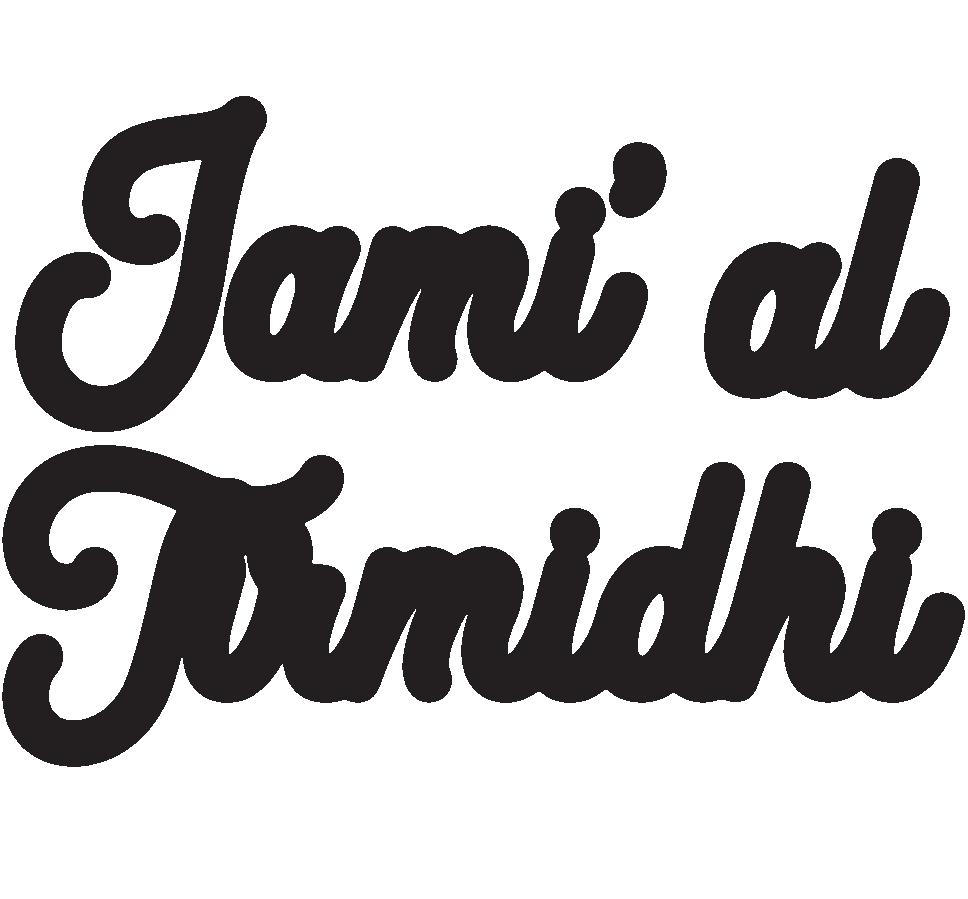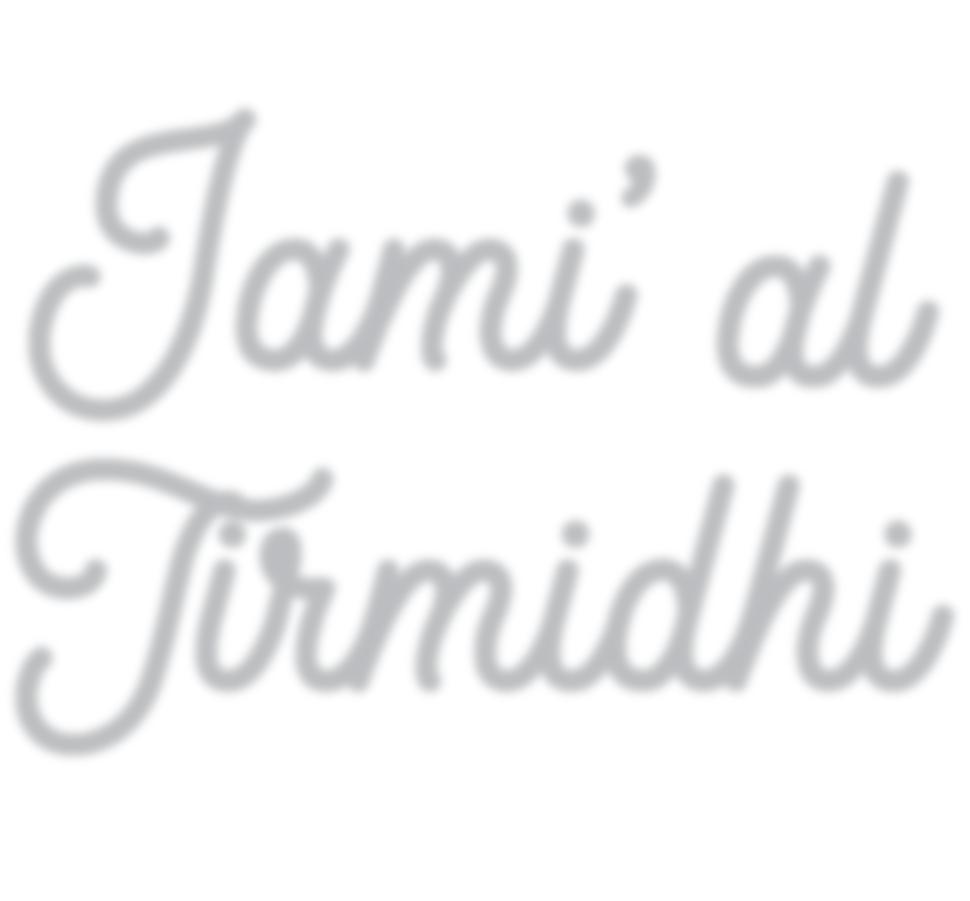40 HADITH FROM SHAHRUL HUSSAIN & ZAHED FETTAH


40 HADITH FROM SHAHRUL HUSSAIN & ZAHED FETTAH


40 HADITH FROM SHAHRUL HUSSAIN

Forty Hadith from First Published in 2023 by THE ISLAMIC FOUNDATION
Distributed by KUBE PUBLISHING LTD
Tel +44 (0)1530 249230
E-mail: info@kubepublishing.com
Website: www.kubepublishing.com
Text copyright © Shahrul Hussain & Zahed Fettah 2023 . All rights reserved. No part of this publication may be reproduced, stored in a retrieval system, or transmitted in any form or by any means, electronic, mechanical, photocopying, recording or otherwise, without the prior permission of the copyright owner
Author Shahrul Hussain & Zahed Fettah Editor Umm Marwan Ibrahim
Cover Design Afreen Fazil (Jaryah Studios)
Arabic/English layout & design Nasir Cadir
A Cataloguing-in-Publication Data record for this book is available from the British Library
ISBN 978-0-86037-965-2
eISBN 978-0-86037-970-6
Printed by Elma Basim, Turkey
Allpraise is due to Allah, the Lord of the universe, the Most Merciful the Most Kind, the Master of the Day of Judgement. Peace and blessings be upon Muhammad Allah, and upon his family and Companions.
Hadith is one of the most important institutions in Islam. It contains the teachings of the Prophet Muhammad regarding all aspects of Islam. It is indispensable in order to attain the correct understanding of the religion, and without it, guidance is not possible.
and study Hadith, even if it is at a basic level.
Unfortunately, most of the works of Hadith literature available in English are long, detailed, and viewed as heavy reads by the general masses. As these are religious texts, it can be daunting for beginners to understand the subject. There are mainly two types of books about Hadith in English. While one type deals with the science of Hadith in terms of its historical phenomena as a vital Islamic institution, the other consists of thick volumes of English renditions of Hadith understanding Hadith.
we set out to compile a series of forty ahadith from each of the six canonical books of Hadith. The collection aims to educate people who wish to enjoy Hadith literature without delving too deep into its technicalities. The style and language used in these books is nonspecialised and thereby accessible to readers of all levels and ages. As such, the collection is also ideal for new Muslims who wish to learn more about Hadith.
In this particular volume, we have selected forty ahadith from Jami‘ found within the Sunan. There is no particular reason for choosing the theme so as to touch upon various aspects of the Islamic teachings, such as:
• Manners and Etiquettes
• Character of a Muslim
• Exhortations and Admonitions
• Knowledge and Action
• Beliefs
When selecting the forty ahadith for each book in the series, we made sure to avoid lengthy and elaborate narrations or those that dealt with selected ahadith focus on character, spirituality, morals, manners and ethics, and that the accompanying explanations of the ahadith focus on highlighting these aspects.
Within this volume is a simple discussion of the theoretical parameters of praiseworthy characters every Muslim should aspire to achieve, supererogatory virtuous acts of worship, and the moral philosophy (in particular normative ethics) of these ahadith. It is hoped
A209 in Tirmidh, in what is now southern Uzbekistan. He travelled to many parts of the world seeking to study Hadith with the scholars of his time. He travelled to Khurasan, Bukhara, Iraq, Makkah, Madinah, and other places.
During his travels, he was able to narrate ahadith from some
He spent several years studying the science of Hadith with Imam alof Hadith in Islam, known today as or Sunan al-
. The general structure he adopts throughout his work is to narrate one or two ahadith on a particular subject, then give a ruling on their authenticity or weakness, and then mention the views of the legal scholars on the subject. He chooses those ahadith that were used by at
narrated that the Prophet said: ‘No Muslim plants a plant or sows a crop, and then a person, or a bird, or an animal eats from it, except that it will be
Fromthe major creations, that is to say, angels, jinns and human beings, the latter enjoy a special status of honour and ability. From the many signs of this special honour and status is that Allah has created
(al-Baqarah 2: 29). The Earth is an amazing gift which Allah has given humankind, but this gift comes at a price. The price is the burden of responsibility to care and look after Earth. Before humans occupied this planet, it was free of pollution, it
Ibn ‘Umar narrated that the Prophet said: ‘ from
Inanother hadith, the Prophet Muhammad has told us that the and place of prayer need to be pure. There are two types of impurities: and or metaphysical impurity is related to the body, in other words, the impurity has no physical appearance, but Allah regards it as impurity. This is when a person either needs to make ablution or needs to take a bath (ghusl). ,
Forty Hadith from on the other hand, is impurity which has a physical appearance such as stool, urine, blood and the like. Such impurities can be removed prayer to be valid.
Charity is one of the most important voluntary acts of worship. terms of not having done enough, in the last moments of their life, provided for you, before death should come to any of you, and he should ( 63: 10). While a person is alive and able, they should seize the opportunity to give as much as they can to charity. However, whatever is given to charity must be pure. The word can mean many things, but the best way to the charity of a person who has given money from unlawful sources. Such a person will not receive any reward for their charity.
Anyone in possession of ill-gotten wealth must return it to its rightful owner and if that is not possible, then give it away to charitable causes. It must be noted that the person will not gain reward for giving away the ill-gotten money; rather, they will stand a chance of not getting punished for possessing it. On top of this, sincere repentance is also required.
Allah is pure and He only accepts what is pure. It is our duty to make sure that what we have and what we do is pure, because anything other than purity is not useful to us, rather it is harmful for us. It may seem like a useful gain in the short term but it will be of no use to us in the long term. In fact, it will only haunt us on the Day of Judgement. May Allah protect us.
said: ‘Some Bedouins asked: “O servants of Allah! Use medicine. For indeed Allah did not make a disease but He made recovery from it or medicine, except for one disease.” They said: “O Messenger of Allah, The weakness of human creation means that they are prone and susceptible to illness. This vulnerability was not by accident but by Divine design. Allah is perfect in His creation and He created humans
narrated that the Messenger of Allah said: ‘The most complete of the believers in faith is the one with the best character and the best of you are those who
Truefaith is that which is followed by good action. Whenever the (faith) it is almost always followed with the mention of righteous actions. This is a clear indication that faith is higher their status is amongst the believers. The Prophet Muhammad came to purify our beliefs and our actions. One of the main reasons good actions are the result of strong faith and sound creed. Hence, the
who divorced his wife while she was menstruating. He
divorced his wife while she was menstruating, so ‘Umar asked the Prophet about that, and he ordered him to take her back.” I said: “And that divorce is counted?” He said: “What else would you think if he was helpless and
law] visited her. She said: ‘So I poured water for him to use for looking at it and said, “O my niece! Are you surprised at said: ‘It is not impure; it is only one of those that roam
 Shahrul Hussain & Zahed Fettah
Shahrul Hussain & Zahed Fettah
This book is a selection of forty beautiful Hadith from Jami‘ al-Tirmidhi. The Hadith are accompanied with an easy to follow explanation accessible to readership of all levels and all age ranges.
The aim of this book is to give the reader a flavour of Hadith literature within Jami‘ al-Tirmidhi. The Hadith mainly reflect themes regarding manners and etiquettes, character of a Muslim, exhortations and admonitions, remembrance of Allah, knowledge and action and beliefs.
Dr Shahrul Hussain is a Lecturer in Islamic studies and Head of Research at Ibn Rushd Centre of Excellence for Islamic Research. He is also a visiting lecturer at Birmingham City University, Business School. He studied Arabic and Islamic studies including Hadith with various scholars in the UK and Egypt. He is a graduate of the University of Al-Azhar where he graduated from the faculty of Islamic law and Jurisprudence in 2001.
Shaykh Zahed Fettah is a Lecturer in Islamic studies and Hafiz of the Qur’an. He graduated from the University of Birmingham with a Law Degree (LLB). After which he studied Islamic Law from the European Institute of Human Sciences. He then completed an MA in Islamic Studies from Newman University, as well as two years of postgraduate studies in Ifta. He has studied Hadith with many scholars from the UK and Algeria, successfully attaining several ijazahs in different Islamic disciplines including Hadith. He is currently a lecturer at Markfield Institute of Higher Education.